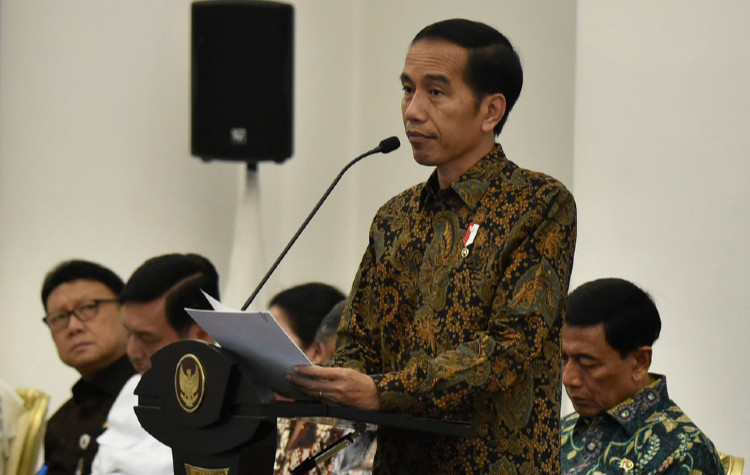
Indonesia: Government must perform its obligations to uphold human rights and fundamental freedoms
(Bangkok/Jakarta, 3 February 2020) – The Asian Forum for Human Rights and Development, together with its members in Indonesia, the Alliance of Independent Journalists (AJI), the Commission for the Disappeared and Victims of Violence (KontraS), the Human Rights Working Group (HRWG), the Indonesian Human Rights Monitor (Imparsial), the Indonesian Legal Aid and Human Rights Association (PBHI), the Indonesian Legal Aid Foundation (YLBHI), the Institute for Policy Research and Advocacy (ELSAM), and Yayasan Sekretariat Anak Merdeka (SAMIN), express grave concern over the continued violation of human rights and fundamental freedoms during the first 100 days of Jokowi’s second term as President of Indonesia.
Recorded data shows an increase in human rights violations, suggesting a lack of commitment and accountability of the Government to protect human rights in accordance with international human rights principles and norms. We call on the Government of Indonesia to take all necessary measures to address the situation and put a halt to the erosion of civic and democratic space in the country.
28 January 2020, marked the first 100 days of the Jokowi’s second term as President of Indonesia, and he has yet to fulfil his campaign promises from 2014 to address human rights abuses. These include the human rights violations in 1965 and 1998, as well as ones related to more recent protests in September 2019. The latter being particularly significant as the protests expressed dissatisfaction with the adoption by the Jokowi administration of amendments to the Law that governs the Corruption Eradication Commission and the introduction of the new draft of the Criminal Code. The former is believed to weaken the role of the Commission, while the latter is deemed to further reinforce discrimination against minority groups.[1]
During the protest in September, there were constant reports of the disproportionate use of violence and force by the police to supress peaceful protests across Indonesia, resulting in many injuries and even fatalities. Those arrested were reportedly ill-treated, tortured and intimidated while in detention. Afterwards, the police force, judiciary system and the national human rights institutions did not adequately uphold the principles of transparency and impartiality when investigating the incidents.[2] To this day, not a single case has been properly addressed by the Government.
When it comes to fundamental freedoms, the Jokowi administration has contributed to the continuous repression of freedom of expression, peaceful assembly and association. Between October 2019 and January 2020, 49 cases were recorded, including those of 83 people, mostly civilians and students, who were detained as a result of expressing their dissent to the Government.[3]
These people were often labelled by the authorities as communists, radicals, separatists and anti-sovereignty, particularly when they talked about issues such as: human rights violations in Papua; the six Papuan activists who were charged with subversive articles under Indonesian law; LGBTQ issues; or other contentious matters. Children have also become victims, either directly or indirectly, in various cases of state oppression.
When it comes to policies, the Jokowi administration has failed to allow the full and meaningful participation of the public in policy-making processes, as can be seen from the failure to consult the public on the potential socio-cultural, economic and environmental impact of relocating the capital city from Java to Kalimantan.
What is more, the Government has also failed to accommodate workers’ concerns over the controversial Omnibus Law, a set of laws intended to streamline investments in Indonesia. In the process of drafting the proposed law, which is likely to bring more harm than good as it diminishes workers’ rights, worsens environmental degradation and criminalises minorities, labour unions were not consulted. This move clearly shows that Indonesia prioritises businesses and investments over the protection of its workers.
The fact that Jokowi’s administration is moving further away from realising his commitments to uphold human rights, has left many disappointed and has increased distrust and unrest amongst the people. This trend is in direct opposition to Indonesia obligations as a current member of UN Human Rights Council and a progressive member of the Association of South East Asian Nations (ASEAN). It is saddening to learn that Jokowi has deliberately demonstrated its position against its own people by defending certain political and business interests.
We call on the Government of Indonesia, in particular President Jokowi himself, to be accountable to all on the human rights violations that have happened in the country, both past and present, by conducting thorough and transparent investigations that involve civil society, public participation and international independent mechanisms, and to bring all perpetrators of human rights violations to account.
Furthermore, we call on the Government to put a halt to and repeal all contentious laws that can further violate the human rights of those who are exercising their rights and fundamental freedoms, including students, workers, human rights defenders, people from marginalised groups, and all civilians.
**
For a PDF version of this statement, please click here.
For further information, please contact:
– East Asia and ASEAN Programme, FORUM-ASIA, [email protected]
[1] https://forum-asia.org/?p=29892
[2] https://kontras.org/2020/01/31/komnas-ham-tidak-serius-dalam-pelanggaran-hak-asasi-manusia-aksi-reformasidikorupsi/
[3] https://kontras.org/2020/01/27/100-hari-kerja-100-hari-mendelegitimasi-hak-asasi-manusia/




